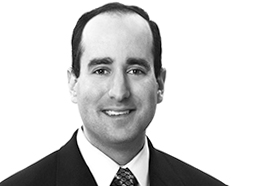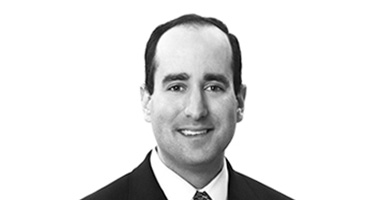Recent legislation has sought to eliminate or restrict academic tenure. We asked Robert A. Scott, senior advisor to the Grant Thornton Higher Education & Not-for-Profit practices and President Emeritus at Adelphi University and Ramapo College of New Jersey, for his views on the role of academic tenure.
Academic tenure has traditionally provided professional and economic security, protecting faculty from interference in teaching and scholarship. The freedom of U.S. colleges and universities and their faculties to decide what to teach, how it will be taught, and which students to admit is established law. Indeed, these protections resonate with the lifetime appointments that protect the independence of federal judges.
However, recent political discussions across several states have challenged the authority and autonomy of academics and academic institutions. Critics have decried the intellectual freedom of professors to seek the truth no matter where it may lead, especially when they challenge conventional wisdom or reveal inconvenient facts.
These recent attacks on tenure often cite reasons that are more myth than reality.
5 myths about tenure
Many critiques about academic tenure have five myths at their core:
Myth #1: One myth is that tenure is guaranteed lifetime employment.
In exceptional circumstances, like the fiscal exigency of an institution or a discontinued academic program, tenure can be terminated. Most tenured professors still need to prioritize their teaching responsibilities over scholarship. Some cite scientific research as the only reason for tenure, but in truth it is intended to protect scholars of any academic specialty.
Myth #2: Tenure protects “dead wood.”
This ignores both the rigorous nature of tenure candidate reviews that evaluate the potential for continued professional growth as well as the processes of post-tenure review and academic program reviews. Tenure is only granted after a probationary period by an institution’s governing board and following a recommendation from its president. Even long-tenured faculty are part of the periodic evaluation of academic programs in terms of curriculum design, degree requirements, faculty credentials, teaching methods, and student satisfaction and success.
Myth #3: Protection of academic freedom by tenure is not needed because of the First Amendment.
An individual’s right to free speech is not the same as academic freedom, which is a reciprocal right that involves the institution, the scholar and society.
Myth #4: Multi-year contracts can serve as an alternative to tenure-track.
Unfortunately, multi-year contracts do not go far enough in protecting professors, especially if their research is longer-term. Another limitation of the multi-year contract construct is that it fails to recognize how important full-time tenured faculty are from a governance perspective alongside the board of trustees and president. Specifically, their alignment is critical in fulfilling the mission and satisfying the requirements of an institution’s public charter and its regional and professional accreditations.
Myth #5: Tenure is not needed when there is a union contract.
Tenure has distinctive features that are beyond the compensation and working condition features of collective bargaining agreements.
Recent attacks on tenure weaken the foundation of higher education in the U.S., and the characteristics that make it attractive to scholars and students from all over the world: institutional autonomy, academic freedom, and the protection of professors from the biases and interference of trustees, politicians, donors and others.
Yet, financial pressures and other factors are also combining to move many institutions away from granting tenure.
Related resources
INDUSTRY
ARTICLE
ARTICLE
The move away from tenure
Increasingly, the professoriate has shifted from mostly full-time tenured or tenure-track faculty positions to mostly part-time, adjunct, contingent or otherwise non-tenure track.
Part-time faculty can be beneficial in many cases, especially in providing expertise not needed full-time. However, they are not an adequate substitute for full-time tenured faculty. Many have jobs on multiple campuses, and neither the office space nor the necessary time to properly advise students, engage in scholarship or shape academic programs.
Some argue that multiple-year contracts serve as an alternative to tenure-track and tenured faculty positions. Yet, this fails to recognize how full-time tenured faculty are partners in governance, with the board of trustees and president, in fulfilling the mission and satisfying the requirements of an institution’s public charter and its regional and professional accreditations.
It’s important to note that faculty have primary responsibility for the following areas:
- Curriculum and methods of instruction, including innovations for responsiveness to new knowledge and societal needs
- Research, scholarship and creative activity
- Recruitment, mentoring and retention of faculty
- Degree requirements, recommending to the president and trustees when they are satisfied
- Development of student research skills
- Advising students about courses of study, research opportunities, internships, and careers
- Serving as references for students for employment and graduate study
- Advising those aspects of student life that relate to the educational process
- Participating in third-party reviews of academic programs and professional degrees
- Maintaining institutional and programmatic accreditation
- Participating in strategic planning and searches for senior administrators
These are roles for those who have a long-term and vested interest in the institution — not for those who hold temporary appointments.
The importance of tenure for the future
As higher education continues to evolve in response to demographic, political, economic and technological forces, so too will the design of academic programs and the qualifications of those hired to teach. Amidst these changes, the safeguards for academic freedom of inquiry and teaching should continue if high quality is to be maintained.
That is why college and university policies regarding faculty professional development and tenure should be evaluated and improved. A simple review of the alignment of institutional mission statements and the proportion of students who graduate in even six years can show a misalignment of goals, strategies, the use of resources, rewards, and results. Institutions should employ rigorous periodic external reviews of academic programs, including their purpose, curricula, faculty expertise, resources, and student expectations and opportunities. They should also sponsor post-tenure reviews on a regular schedule, to help identify faculty strengths and needs for continuing development, including their role in governance and leadership. Every other profession requires a form of continuing professional education. Higher education should as well.
By engaging the faculty as important partners in governance and mission fulfillment, embracing their academic freedom and the protections of tenure, we can continue to strengthen institutional capacities for fulfilling collegiate purposes and serving the public good.
Contact:



Dennis J. Morrone
National Managing Principal, Not-for-Profit & Higher Education Industries
Grant Thornton Advisors LLC
Partner, Audit Services, Grant Thornton LLP
Dennis Morrone is the National Managing Partner of Grant Thornton's Not-for-Profit & Higher Education Practices.
Iselin, New Jersey
Industries
- Not-for-profit & higher education
Service Experience
- Advisory
- Operations and performance
- Audit & Assurance
- Finance Transformation
- Employee Benefit Plan Audits
- Transaction advisory
Our not-for-profit and higher education featured industry insights

No Results Found. Please search again using different keywords and/or filters.
Share with your network
Share